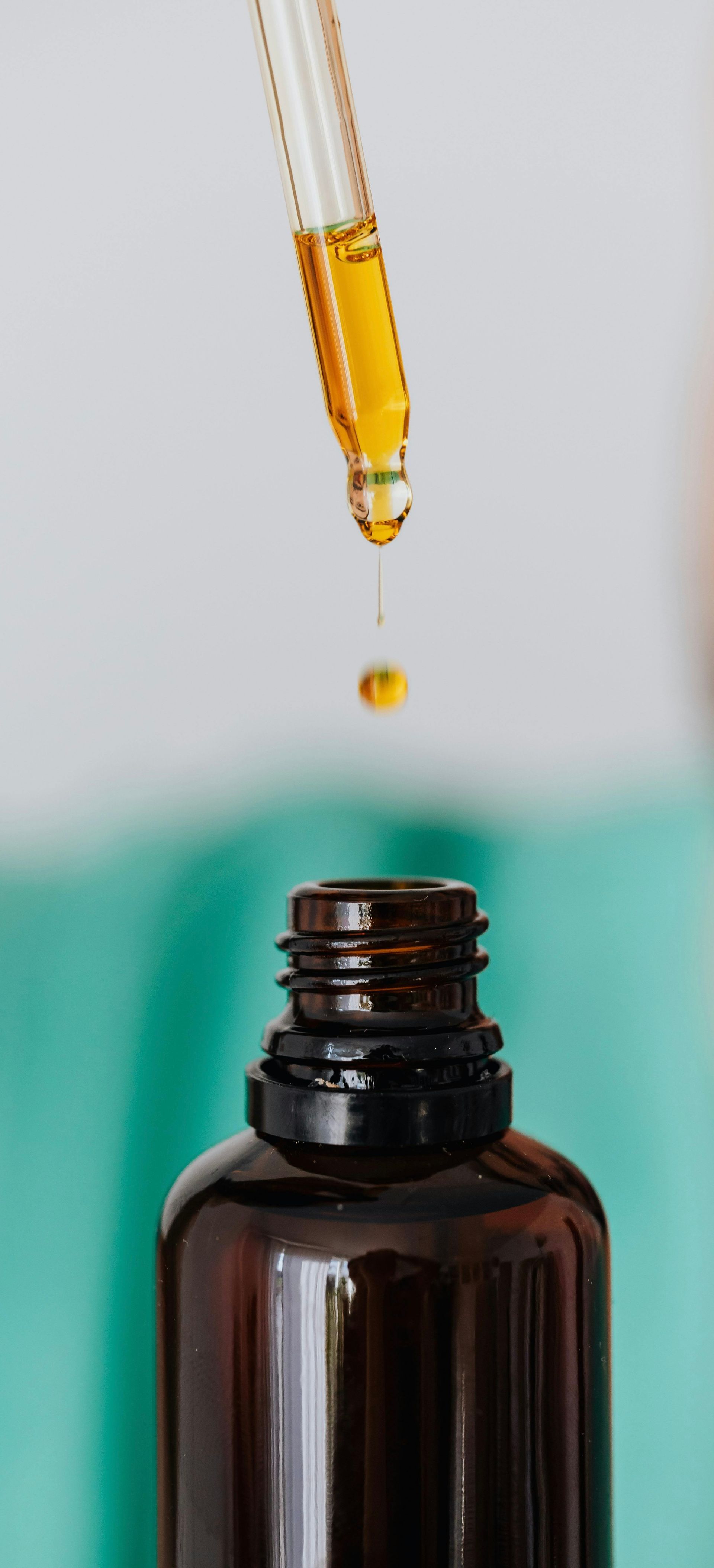Preconception & Prenatal Vitamins
Tea Time with Jo|The Lowdown on Preconception and Prenatal Vitamins
Arguably, one of the first things recommended to patients on their initial visits to the Obstetrician (OB) is prenatal vitamins. Sometimes the doctor actually “prescribes” them and the patient picks them up from the pharmacy. Surely, a supplement that comes from the doctor would be excellent quality, right? Guess again, I actually find that the opposite is true. The prescribed or most frequently recommended prenatal vitamins are typically synthetic and don’t carry a well rounded list of bioavailable vitamins and minerals.
What happens when you are looking to conceive but haven’t yet? What kind of supplements support healthy egg and sperm quality? How do you know which ones to choose? Grab a hot beverage (and maybe a snack) and read on to learn my tips for finding good quality prenatal vitamins for pre-conception and pregnancy.
Prenatal Vitamins VS Regular Multivitamin
I’d like to start by saying that the term “prenatal vitamins” is a marketing term. There is really no such thing as a supplement that is only beneficial when pregnant and not during other phases of life. Generally, what makes a vitamin a “prenatal” is that it contains Folic Acid; a supplement that is said to prevent Neural Tube Defects. Below, I will dissect Folic Acid in more detail. For now, I just want to clarify that the supplements you take before and during pregnancy are for YOUR health. Your baby is going to absorb all of the nutrients it needs from you. Babies will quite literally leach minerals from your bones if they need to. The vitamins are there to build up your stores and fill in any gaps in your nutrition. Therefore, it is not 100% necessary that they be labeled as “Prenatal”.
Do You Even Need Prenatal Vitamins?
This is a controversial question. I would say that the average American would definitely benefit from vitamin supplementation as the standard American diet is devoid of nutrients. Someone who puts effort into eating whole foods and keeping their diet “clean” may still need supplementation because some bodies just don’t absorb some nutrients all that well. An argument can be made that, if someone has worked with a professional who has assessed their vitamin and mineral stores, and their nutrition is well rounded and metabolized well by their system…then they shouldn’t need vitamins at all. While this may be true for a small and specific group of people; they are the exception and not the rule. That being said, like we mentioned above, they do not need to be labeled as “prenatal” to be of benefit.
Men Benefit From Prenatal Supplementation Too!
As the old saying goes, it takes 2 to tango. In my clinical experience, I see female partners doing everything they can to make themselves more fertile. They research all of the supplements and take enough to open their own health food store. Their male partners, however, will often complain at being told they need to take supplements as well. Ideally, everyone is getting all that they need from their nutrition. However, it takes a great deal of effort to consume all of the variety of foods that we need to check all the boxes. For this reason, both partners should do their part to improve egg and sperm quality. While there is a ton of marketing for male fertility supplements, the reality is that sperm benefit from a lot of the same supplements that benefit eggs. For that reason, I often recommend that male partners take the exact same prenatal as their female partners.
You read that right, the same ones. Think about it, there is nothing in a “prenatal” vitamin that is going to cause a man to spontaneously sprout boobs. They are the same vitamins and minerals that go into the vitamins marketed to women. Don’t fall for the hype.
Also, sperm (just like eggs) take about 3 months to develop, therefore, it is important for men to take multivitamins as part of the preconception phase as well. And just in case that was news to you, I will clarify that men produce semen all the time (the fluid) but sperm take 3 months to develop and mature, just like eggs do. So while men can ejaculate multiple times in one day, the fluid becomes less and less saturated with sperm with each subsequent ejaculation.
Bioavailability Matters
When you look at the label for your vitamins, what do you see? Under the nutrition label that tells you how much of which vitamin is in a serving, does it list any ingredients? Are their things like “microcrystalline cellulose” or “modified food starch”? Or do they list actual herbs, fruits and vegetables? If your vitamins don’t contain any actual food in the ingredients, it’s time to find new vitamins. The majority of vitamins on the market are synthetically made. Synthetic vitamins and minerals are produced in a lab. They allow scientists to isolate the vitamins and minerals they want so that they can customize the amount they put in each formula.
Fun fact: I got to witness the process of custom labelling a supplement line and I can tell you that there are only a few labs in the United States that produce ALL of the supplements you see at the store. They just make each formula slightly different and slap a different label on them. So that $55 bottle of “premium quality” multivitamins is the same as the $12 ones you can get at the pharmacy.
What makes one supplement better quality than the other is the Bioavailability of the ingredients. Bioavailability is the portion of a substance that your body can actually absorb to have an effect. Do you think your body would absorb synthetic Vitamin C better than it would from an actual source? Say, straight from a bell pepper? (Another fun fact: red bell peppers have way more vitamin C than oranges).
Our bodies contain the necessary enzymes to digest whole foods. When you read a supplement label and you see that it is filled with whole foods such as fruits and vegetables, you are more likely to absorb the full percentage that is listed than you are to absorb any percentage of the synthetically made stuff.
Folic Acid VS Folate
As mentioned above, Folic Acid is often the supplement that everyone hears about when it comes to prenatal care. Interestingly enough, folic acid is actually synthetic. You read that right! Folate is the natural form of Folic Acid. While folate is widely available in many foods, the synthetic form is often what gets used in prenatal vitamins. Chances are this is done in order to control the amount each vitamin contains per serving. The common recommendations is 400-600mcg of folic acid each day to prevent Neural Tube Defect. The issue lies that some people cannot properly absorb folic acid and they often don’t know it because it isn’t something that is commonly screened for. It is in my opinion that taking a supplement that contains Folate would be better across the board. That way we know that they body is going to have an easier time assimilating such an important nutrient during pregnancy and both mom and baby will be benefiting more.
Methylated Vitamins
There are some people who have a hard time assimilating certain supplements because their body might have a genetic mutation that keeps them from doing so. One such example is the mutation of the MTHFR gene. While we all carry this gene, some of us have a mutation that affects the way our bodies are able to convert certain chemicals. The mutation can make it difficult for our bodies to absorb things like Folic Acid, Folate and B12. For individuals that carry this mutation, they need help converting these vitamins because they play such an important role in several processes of the body. Consuming a methylated version of these vitamins such as methylated folate and/or methylcobolamine (B12), would be very helpful.
A simple blood test can determine if you have a mutation in the MTHFR gene. As a matter of fact, I suggest every female that is preparing for conception to get tested for this mutation in MTHFR because it can lead to miscarriages. The good news is, the odds of miscarriage decrease when they take methylated folate and B12.
Since taking the methylated versions of these vitamins benefits those with MTHFR gene mutations, and does no harm to those who don’t have the mutations, it is safe to just take the methylated version from the beginning. This way, you can cover that base if you can’t or don’t want to do testing.
Omega 3s
I feel like this is one of the most controversial supplements on the market. Some practitioners believe that Omega 3 fish oil has little to no benefit because the oil may become rancid from sitting on a jar, on the shelf, for a long period of time before a person consumes it. As with most supplements, the best source of Omega 3 is from food. The issue lays that the average person consumes far more Omega 6. When the ratio of Omega 6 to Omega 3 is high, inflammation becomes of concern. That is one of the reasons why I still recommend patients (both male and female) take Omega 3; to help keep that ratio at a healthier level.
Omega 3 is an essential fatty acid that helps to reduce inflammation, promote circulation and aid in hormone synthesis (our bodies need the fatty acids to produce hormones). Since DHA is also really important for the baby’s brain development, and DHA is part of the Omega 3 composition, along with EPA, I recommend patients take Omega 3. That being said, quality is key. Look for a brand that doesn’t use fillers, natural flavors or colors. They should also package their Omega 3 supplements in dark bottles (preferably glass) to prevent oxidation. If you are burping up fish oil after taking it, you might need to switch to a different brand. I also prefer patients take Omega 3 that is sourced from fish or krill as it is more bioavailable than plant based sources. Depending on lifestyle factors, my most common recommendation is between 1,000mg-2,000mg a day.
Ubiquinol
Pronounced “You-bih-quin-all”, Ubiquinol is a synthesized version of CoEnzyme Q10, aka CoQ10. Our bodies naturally make this powerful antioxidant, however, the production reduces with age. Antioxidants protect our bodies from oxidative stress, making our cells more resilient against the damage induced by toxins (free radicals). Ubiquinol is particularly good at protecting both egg and sperm. Some studies have even suggested that CoQ10 supplementation has improved the parameters for sperm quality.
Like all supplements, bioavailability matters. Since Ubiquinol absorbs better in the body than standard CoQ10 (also called ubiquinone), it is the form I often recommend my patients take. The dosage will vary depending on the person but the most common I recommend is 100mg. Look for a brand that avoids caramel color in the ingredients.
Inositol (Myo & D-chiro)
Here is another fun one to pronounce! I say “eye-nos-it-all” but I have heard, and said, just about every version of pronunciation you can imagine for this supplement. Originally classified as B8, Inositol is a type of sugar alcohol that influences the body’s response to insulin. While there are several types of Inositol, I’m going to focus on the 2 most common: Myo-Inositol and D-Chiro Inositol. Both are naturally occurring in foods, and while our bodies do produce some levels of Inositol, there are benefits to supplementing with it. Because of the effects on insulin, the combination of Myo & D-Chiro Inositol is fantastic for those dealing with metabolic syndrome. It is also very useful for those with Insulin Resistant PCOS (1 of the 4 types of PCOS that is characterized by weight gain, higher A1C levels, Hyperinsulinemia, irregular periods, and excessive hair growth on face). In these cases, the combo of Myo & D-Chiro help the body to become more sensitive to insulin and allow the cells to take glucose from the blood. When insulin sensitivity improves, we see positive effects on weight loss, hormonal balance and ovarian function.
Those that do not suffer from PCOS can also benefit from supplementing of Myo-Inositol by itself. This type of Inositol helps with the signaling between nerves as well as with glucose metabolism and fat metabolism. Because it can also play a role in hormone balancing, it may also positively affect ovarian health.
While Inositol is fairly easy to take and has almost no side effects at an average dose of 2,000mg a day; I would still consult with your Holistic Health Provider prior to taking it. For some individuals, Inositol can drop blood sugar too much and randomly passing out is not cute!
What About Organ Supplements?
Organ supplements are gaining more and more popularity these days even though they have been around for many years. Organ meats such as liver, kidney, and spleen are more nutrient dense than non-organ meats. For example, beef liver contains more Iron, Vitamin A, B12, Copper and Folate than a typical cut of steak.
If you are not a fan of consuming organ meats, you can opt to take encapsulated, desiccated organs. Several nutritionists agree that, while eating the cooked organ meat is better, taking the supplement form may contain just as many, if not more, nutrients as a good quality multi-vitamin. The argument can also be made that nutrients in organ meats are much more bioavailable. However, it is imperative to find a brand that encapsulates grass-fed and grass finished organs in order to get maximum nutrients.
Bottom Line
While getting vitamins and minerals through nutrition is the preferred method, most individuals benefit from supplementation. To be clear, you can’t out-supplement bad nutrition. It is unreasonable to think that an individual can consume mostly processed foods and think that supplements are going to drastically impact their health.
That being said, whether a person is preparing for conception (male or female), currently pregnant or recently postpartum, the following supplements are my top recommendations:
A good quality Multivitamin and/or Organ supplements, Omega 3 fish oil, Methylated B-vitamins, and Ubiquinol
Other supplements that may be helpful include:
Inositol & Vitamin D (not covered here, but supplementation depends on blood serum levels), Probiotics (also not covered here but especially useful for thyroid issues) and others.
It is very difficult to cover what every individual might need but starting with my top recommendations will cover a lot of bases for most people.
As always, any additions to your supplementations should be discussed with your wellness provider. I hope this post will inspire you to do some research and find a supplement routine that works best for you.










